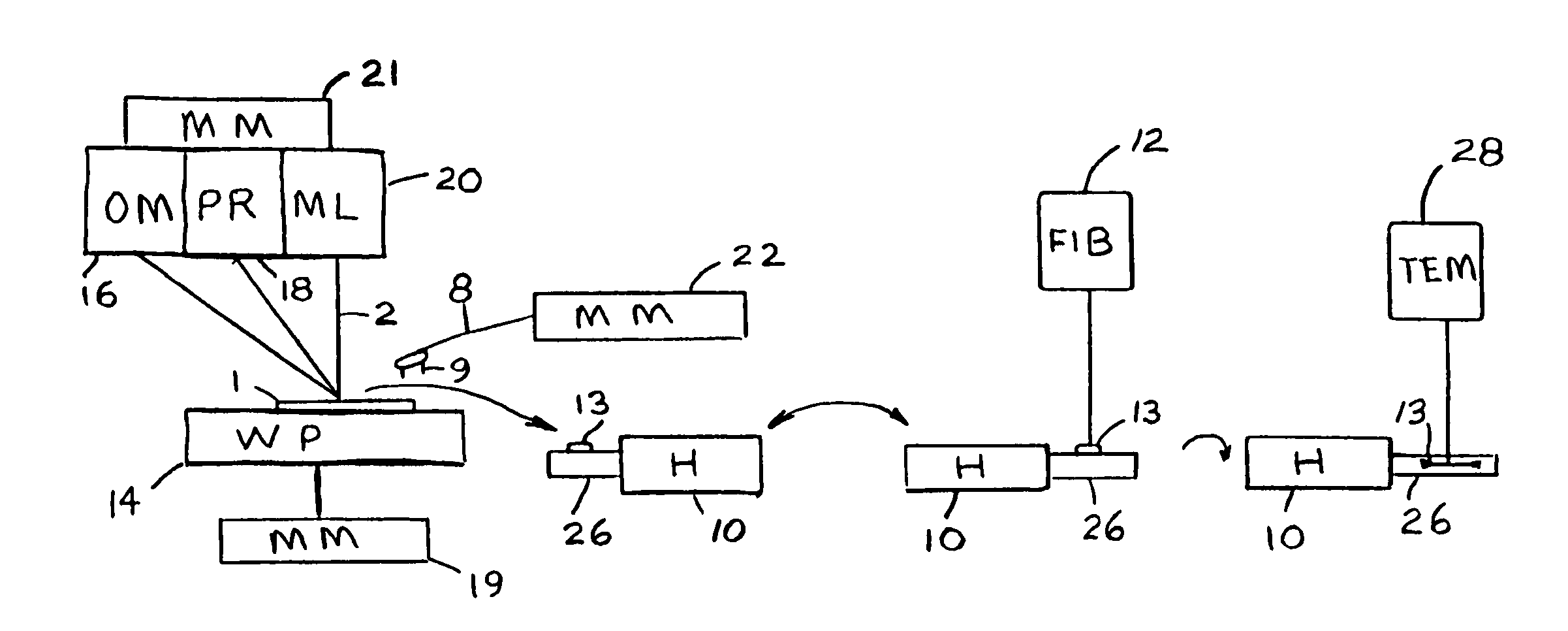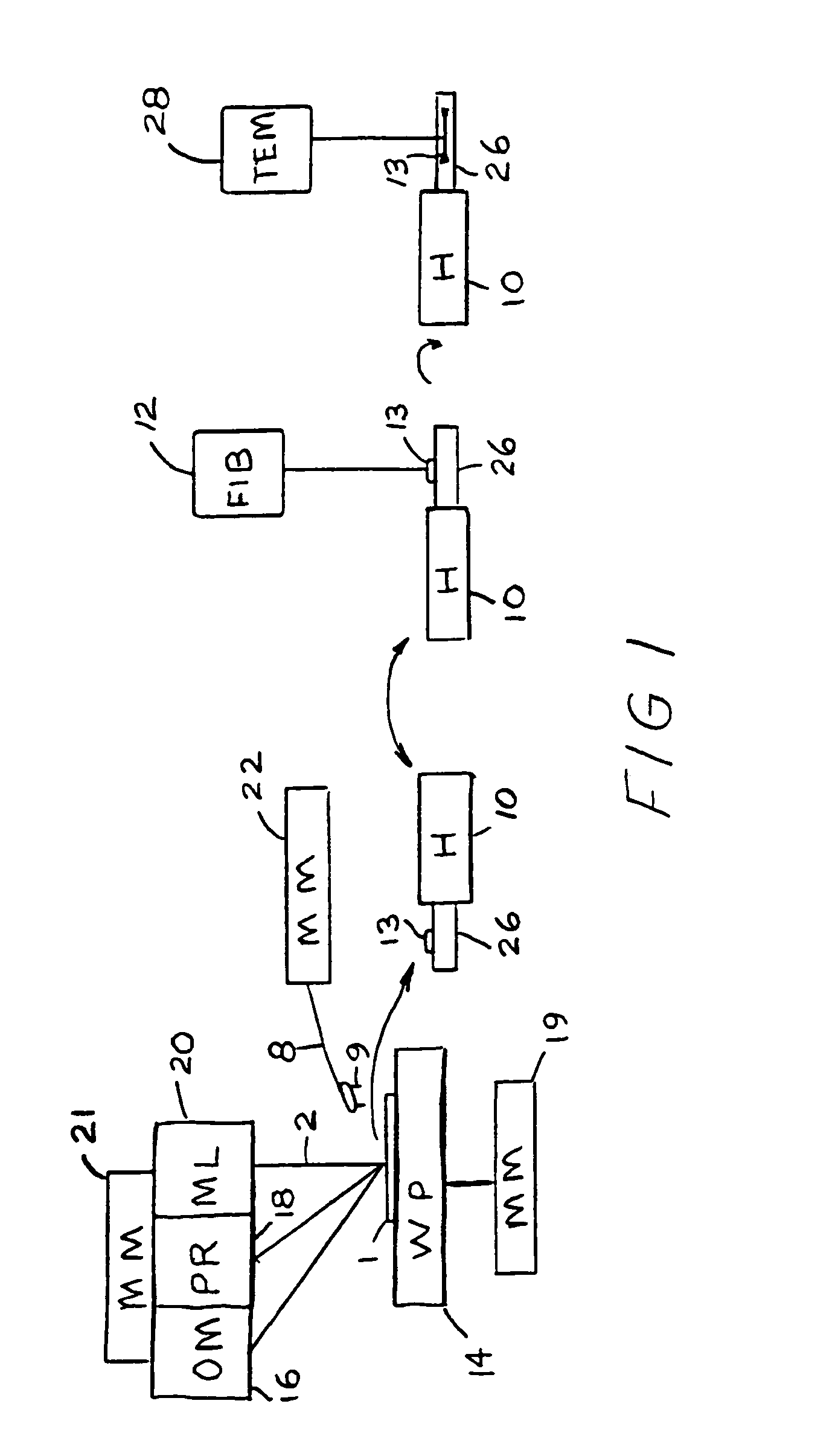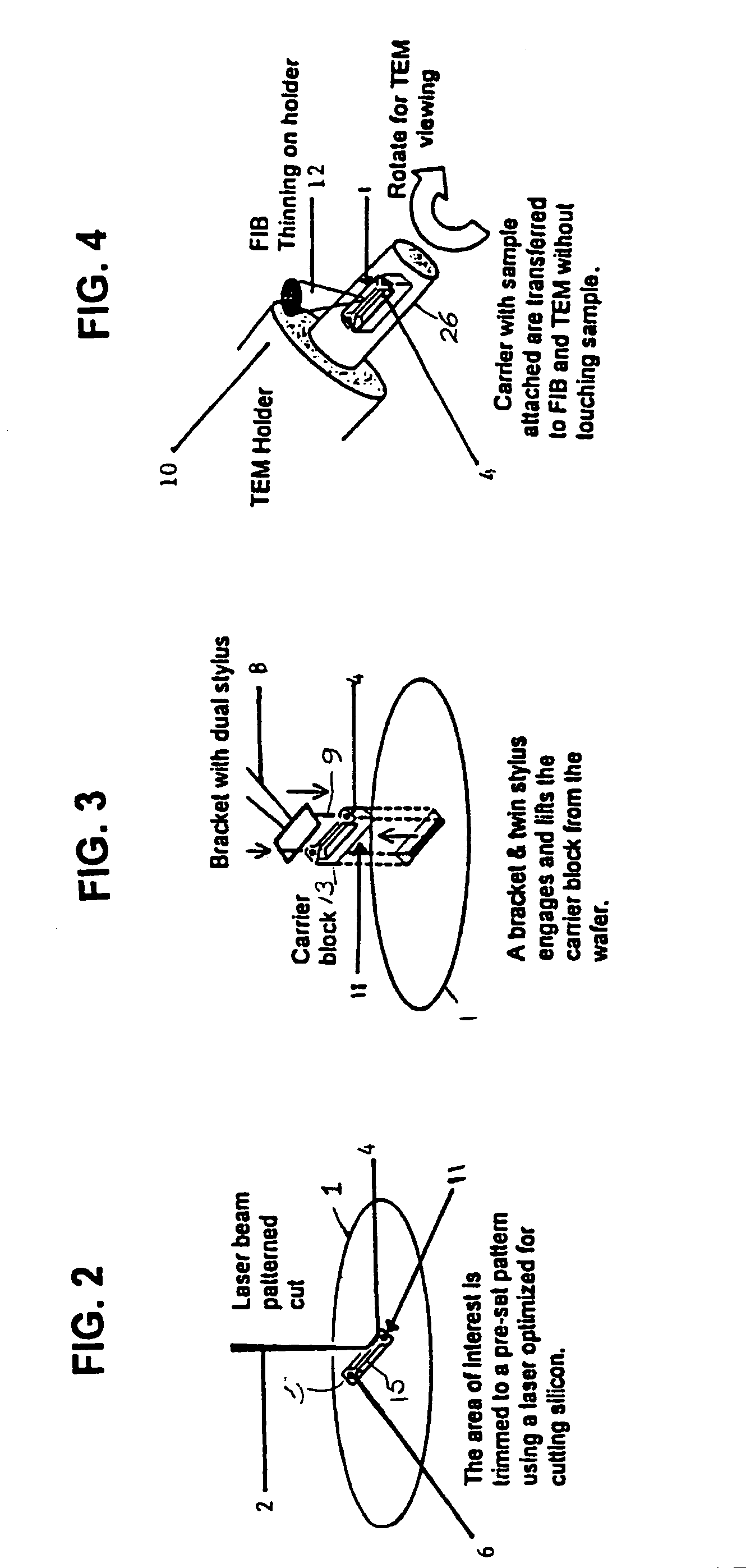Transmission electron microscope sample preparation
a technology of electron microscope and electron microscope, which is applied in the field of electron microscope sample preparation, can solve the problems of inability to femto-laser machining, inconvenient use, and inability to achieve the effect of reducing the cost per sample, convenient use, and convenient us
- Summary
- Abstract
- Description
- Claims
- Application Information
AI Technical Summary
Benefits of technology
Problems solved by technology
Method used
Image
Examples
Embodiment Construction
[0037]The process of the present invention provides a safe, easy to use, semi-automated, and efficient method for cutting and extracting a specific nano-level feature from a wafer. The method allows a user to remove most of the material in situ, while also providing protection for subsequent steps. The holder or holder tip can then be placed inside a FIB for final thinning, followed by direct transfer into the TEM.
[0038]As shown in FIG. 1, a preferred embodiment of the TEM sample preparation apparatus of the present invention has a wafer stage platform 14 and an optical microscope 16. A computer operated pattern recognition assembly 18 is connected to the optical microscope for automatically addressing specific locations of areas of interest 4 on the wafer 1 as selected by the optical microscope. Preferably, a milling laser 20 is attached to the optical microscope 16 to mill a set pattern around an area of interest 4 of the wafer 1. The pattern includes forming a thin sample strip 1...
PUM
| Property | Measurement | Unit |
|---|---|---|
| atomic size | aaaaa | aaaaa |
| atomic size | aaaaa | aaaaa |
| atomic size | aaaaa | aaaaa |
Abstract
Description
Claims
Application Information
 Login to View More
Login to View More - R&D
- Intellectual Property
- Life Sciences
- Materials
- Tech Scout
- Unparalleled Data Quality
- Higher Quality Content
- 60% Fewer Hallucinations
Browse by: Latest US Patents, China's latest patents, Technical Efficacy Thesaurus, Application Domain, Technology Topic, Popular Technical Reports.
© 2025 PatSnap. All rights reserved.Legal|Privacy policy|Modern Slavery Act Transparency Statement|Sitemap|About US| Contact US: help@patsnap.com



